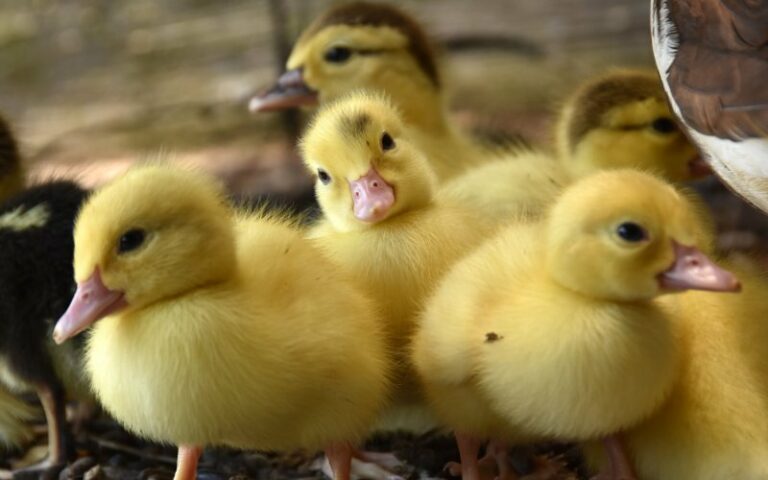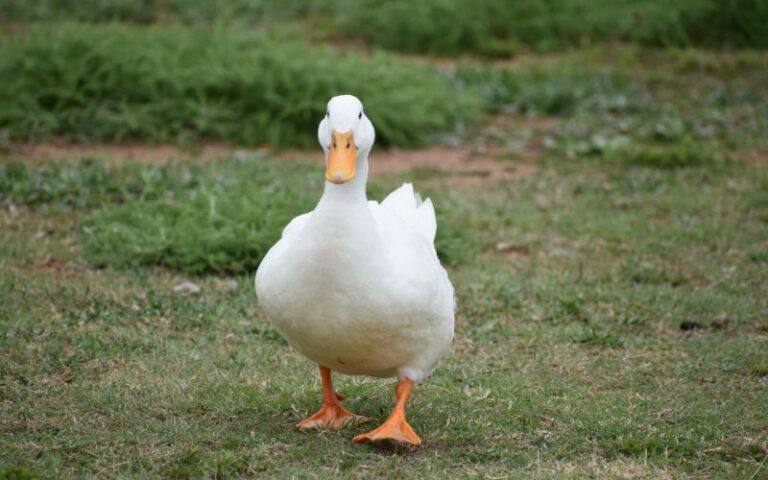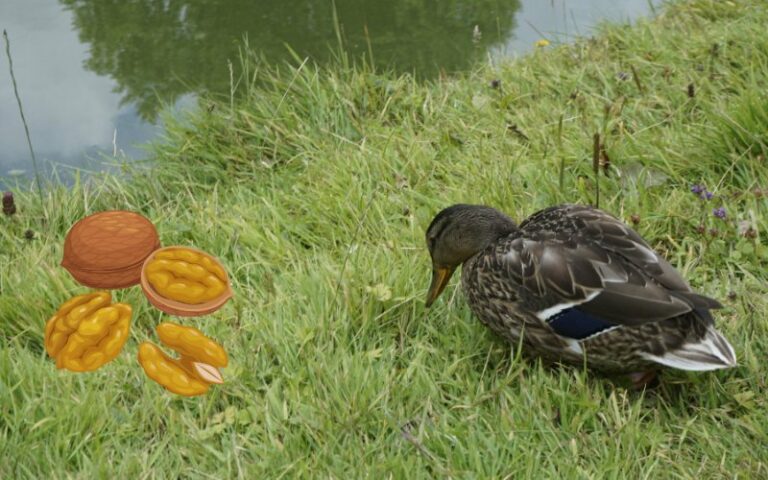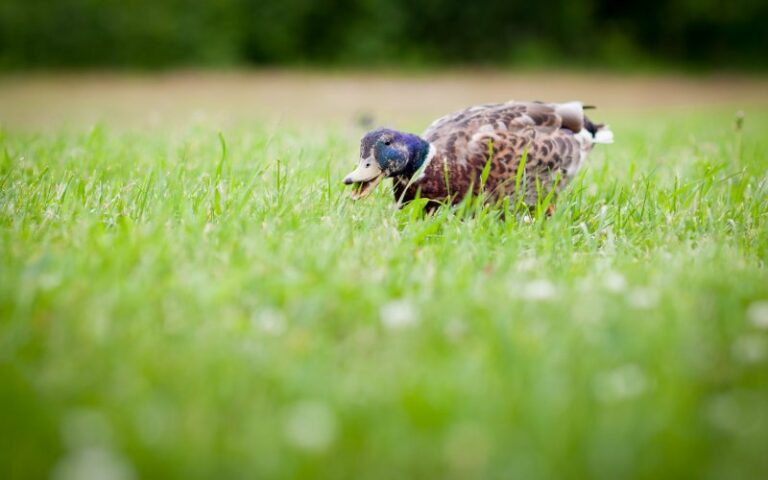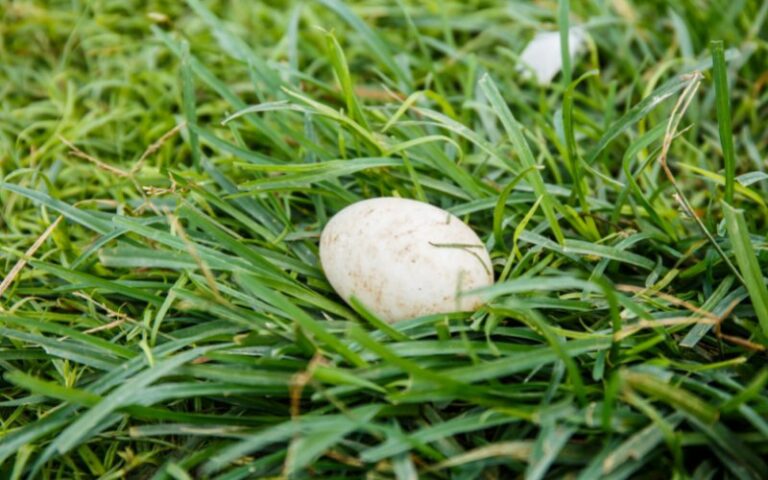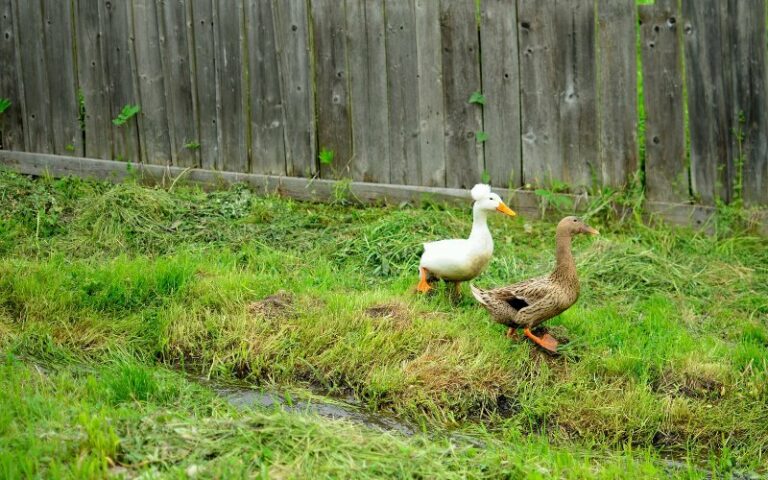Aggressive Duck Behavior: Causes + How to Stop It
You’ll likely agree that ducklings are among the cutest baby animals you can own. Unfortunately, those friendly little balls of yellow puff inevitably grow up. Usually, ducks are usually content to waddle around, splash in puddles, and hang out with their buddies. But, in some cases, you’ll watch those cute little ducklings transform into aggressive birds who may attack one another or anyone who gets near them. It’s understandably disconcerting to watch and aggressive male duck behavior can be quite terrifying, despite their small size.
Even if your ducks aren’t being aggressive towards you, the squabbles and fights that result from ducks trying to assert their dominance over each other can be incredibly annoying to you, all the neighbors, and everyone who happens to be in the general vicinity.
There’s good news, however – I’ve found that aggressive duck behavior is pretty normal and easy to solve, whether it’s aggression toward other ducks or towards you.
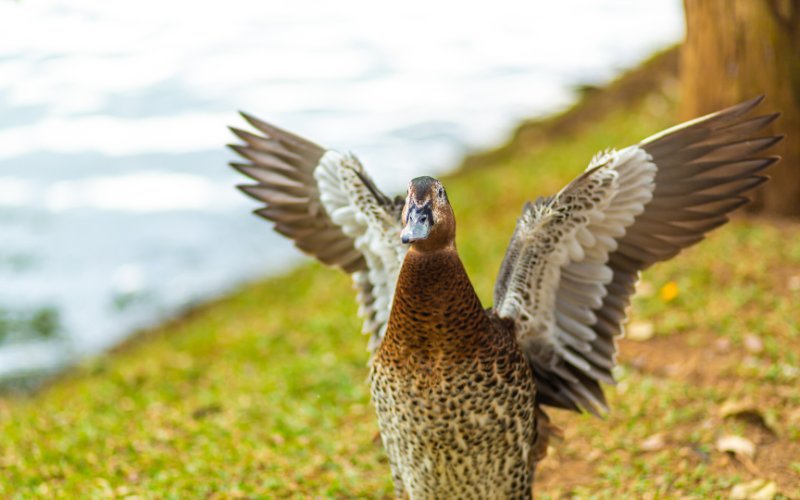
Reasons for Aggressive Duck Behavior? (The Short Answer)
Male ducks, called drakes, are typically the ones who will show aggression. When ducks fight, they’re usually quarreling about one of three things: who’s in authority, potential mates, or food. The alpha duck may fight those who challenge his authority, two male ducks often fight over mates, and any number of ducks may fight to get at food or keep it for themselves.
Why Your Ducks May Become Aggressive or Fight (3 Reasons)
Try to determine why your ducks are fighting before deciding on the next steps to take.
Challenged Authority
When groups of poultry live together, they inevitably establish a hierarchy among themselves. For example, I’ve noticed that, whenever there are two or more roosters in the same chicken coop, one of them is clearly in charge. He maintains that authority by fighting any other bird who he feels is challenging him.
This hierarchy may be less noticeable among ducks, but it exists. One duck, typically a drake, will establish himself as the alpha. Any time his owner, another bird, or any innocent passerby appears to challenge his authority, he’ll fight by pecking or otherwise attacking his opponent.
Potential Mates
Like many other animals, male ducks often quarrel over mates. This reason for duck aggression ties into the first; the dominant duck is the one who gets a particular female, but he needs to establish and maintain his dominance over the other males, which requires conflict. To a certain extent, these quarrels are unavoidable, but, in some cases, they can become overly violent and aggressive.
Hoarded Food
Occasionally ducks will fight over food. This is also usually tied to the fight for authority; the alpha drake doesn’t want to share food with other ducks and fights to keep them away. This is obviously problematic for less antagonistic ducks; if a few dominant birds are constantly fighting over the food, they won’t have a chance to eat.
If you notice that ducks are growing at varying rates, this is probably what’s causing aggression. Ducks fighting over food means that some ducks don’t get sufficient nourishment and others get more than enough. As a result, birds of the same age end up in different stages of development.
How to Stop Ducks Fighting (7 Things to Do)
As a duck owner, obviously you don’t want to see – or hear – ducks constantly pecking and squawking at each other. Here are some things that I’ve found work quite well for reducing quarrels among your poultry.
Assert Your Own Dominance
Aggressive male duck behavior can almost always be traced back to a fight for dominance. While these fights typically stay within the coop, occasionally ducks will take out aggression on humans. Whatever the other causes of aggression are, a good solution to this problem is to assert your own dominance.
If you think about it, it’s obviously not acceptable for a duck to think it’s in charge of you. And once it understands that you, a human, are in charge, the duck will transfer that concept over to other humans. This is especially important if kids are interacting with the ducks. While a full-grown adult might not be worried about an aggressive duck, it could be a little traumatizing for a kindergartener.
Ways to assert your dominance include using authoritative body language, a stern voice, and physical reminders if necessary. I typically try to solve the problem using body language, but some duck owners will resort to striking, kicking, or pinning particularly aggressive birds down.
Separate Aggressive Drakes
Sometimes it’s necessary to separate drakes from the rest of the flock to avoid injuries to other birds. This isn’t a great long-term solution, but it temporarily eliminates the effects of aggression within a flock.
You can also try simulating a fight with a drake. Basically, separate the drake, then let it out and pin it to the ground until it stops struggling. Hold it there for a few minutes until it feels like it’s given up. Ideally, in the duck’s mind, this is the equivalent of losing the alpha position and, as a result of this “fight”, the duck learns its place. When it rejoins the flock, the aggression problem should be much improved.
Don’t Run Away
If you run from an aggressive drake, you’re inadvertently telling him that he won. While you might not be thinking about the long-term effects of your actions when you’re simply trying to escape injuries from an aggressive duck, it’s something to think about when you’re attempting to solve the problem.
Not running away is another part of asserting dominance. If you need to, bring a broomstick to protect yourself when you’re interacting with an aggressive duck. You don’t need to hit the duck – just use it to block his attacks.
Don’t Give Up
You need to outlast your ducks when you’re asserting dominance. If you give up, the issue won’t be resolved. It might take weeks to show your ducks who’s boss, especially if the aggression problem has been going on for a while.
Put Female and Male Ducks Together
If ducks are fighting over mates, ask yourself if the aggression is bad enough that you need to mitigate it. Usually, some conflict is unavoidable. However, if it’s causing injuries to other birds or spilling over into interactions with humans, you can try to solve the problem by making sure that there are enough female ducks cooped with the drakes. This might mean getting more females or adjusting your ducks’ coop arrangements.
Make Sure Ducks Are Getting Enough Food
Aggression over food can have major effects on the rest of the flock, not just the ducks involved. If ducks are fighting over food, try these solutions.
- Make sure that there’s enough food. This one is pretty self-explanatory, and I’m sure you’ve already thought about it. Remember that ducks grow fast, so the portions that you gave them a few weeks ago may not be enough now.
- Try individual or group feeding. Separate out the more timid birds and let them eat in peace. Or, temporarily remove the aggressive birds for half an hour or so and return them once the other ducks have had a chance to eat.
Get Rid of Aggressive Ducks
If absolutely nothing works, it might be necessary to cull or otherwise get rid of aggressive ducks. You might not want to kill your duck if it’s a pet, but you can try giving it away to other duck owners or selling it. However, make sure you’re honest about its issues and the reason you’re getting rid of it – no one wants to get an aggressive drake when they think they’re getting a docile one.
3 Strategies to Prevent Aggressive Duck Behavior
So you’ve had issues with aggressive ducks in the past – or you really want to avoid ever having to deal with overly aggressive birds – and you just got a batch of charming little ducklings. Here are some steps you can take to avoid aggression before it starts.
Avoid Singling Ducklings Out
Try to avoid singling ducklings out. I love holding ducklings, feeding them by hand, and petting them – and that’s okay. However, it’s particularly tempting to single out a duckling that looks like it’s struggling, whether it’s getting bullied, it’s developmentally behind, or it’s particularly reclusive.
Don’t try to raise a duckling apart from the others if you don’t want it to depend on you for the rest of its life. There are other ways to help a duckling out that won’t negatively impact its future.
Pecking is Cute, But Not Okay
You might think a duckling pecking you is adorable, but it can be one of the first signs of aggression. This goes back to the need for you to assert your dominance. It might feel wrong to shout at a fluffy little duckling, but if it’s starting to show aggression you need to show it who’s in charge before the situation gets worse. You don’t have to be mean to a duckling, but you do need to make sure it knows that you’re the “alpha duck”.
Punishment Should Be Immediate
If your ducks have already started showing preliminary signs of aggression, help them make the connection by responding immediately and clearly with punishment. In my experience, this is the quickest, easiest way to prevent aggression from getting any worse.

